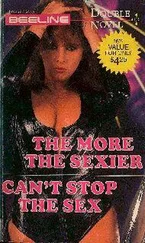“I’m so glad I’m not him,” whispers Eduardo.
“You’re joking, right?” replies Sheila with a satisfied smile. “Don’t you remember last month’s sales presentation to those new clients? I thought you were going to faint.”
“I wasn’t that bad, was I?”
“Oh, you were that bad. Really bad. Worse, even.”
Eduardo looks suitably ashamed, while the rather insensitive Sheila seems oblivious.
“But,” says Sheila, “you can fix it. You can do better.… Have you ever heard of Toastmasters?”
Sheila, a young and attractive brunette, hauls Eduardo to a Toastmasters meeting. There she volunteers to perform an exercise called “Truth or Lie,” in which she’s supposed to tell the group of fifteen-odd participants a story about her life, after which they decide whether or not to believe her.
“I bet I can fool everyone,” she whispers to Eduardo sotto voce as she marches to the podium. She spins an elaborate tale about her years as an opera singer, concluding with her poignant decision to give it all up to spend more time with her family. When she’s finished, the toastmaster of the evening asks the group whether they believe Sheila’s story. All hands in the room go up. The toastmaster turns to Sheila and asks whether it was true.
“I can’t even carry a tune!” she beams triumphantly.
Sheila comes across as disingenuous, but also oddly sympathetic. Like the anxious readers of the 1920s personality guides, she’s only trying to get ahead at the office. “There’s so much competition in my work environment,” she confides to the camera, “that it makes it more important than ever to keep my skills sharp.”
But what do “sharp skills” look like? Should we become so proficient at self-presentation that we can dissemble without anyone suspecting? Must we learn to stage-manage our voices, gestures, and body language until we can tell—sell—any story we want? These seem venal aspirations, a marker of how far we’ve come—and not in a good way—since the days of Dale Carnegie’s childhood.
Dale’s parents had high moral standards; they wanted their son to pursue a career in religion or education, not sales. It seems unlikely that they would have approved of a self-improvement technique called “Truth or Lie.” Or, for that matter, of Carnegie’s best-selling advice on how to get people to admire you and do your bidding. How to Win Friends and Influence People is full of chapter titles like “Making People Glad to Do What You Want” and “How to Make People Like You Instantly.”
All of which raises the question, how did we go from Character to Personality without realizing that we had sacrificed something meaningful along the way?
2
THE MYTH OF CHARISMATIC LEADERSHIP: The Culture of Personality, a Hundred Years Later
Society is itself an education in the extrovert values, and rarely has there been a society that has preached them so hard. No man is an island, but how John Donne would writhe to hear how often, and for what reasons, the thought is so tiresomely repeated.
WILLIAM WHYTE
Salesmanship as a Virtue: Live with Tony Robbins
“Are you excited?” cries a young woman named Stacy as I hand her my registration forms. Her honeyed voice rises into one big exclamation point. I nod and smile as brightly as I can. Across the lobby of the Atlanta Convention Center, I hear people shrieking.
“What’s that noise?” I ask.
“They’re getting everyone pumped up to go inside!” Stacy enthuses. “That’s part of the whole UPW experience.” She hands me a purple spiral binder and a laminated nametag to wear around my neck. UNLEASH THE POWER WITHIN, proclaims the binder in big block letters. Welcome to Tony Robbins’s entry-level seminar.
I’ve paid $895 in exchange, according to the promotional materials, for learning how to be more energetic, gain momentum in my life, and conquer my fears. But the truth is that I’m not here to unleash the power within me (though I’m always happy to pick up a few pointers); I’m here because this seminar is the first stop on my journey to understand the Extrovert Ideal.
I’ve seen Tony Robbins’s infomercials—he claims that there’s always one airing at any given moment—and he strikes me as one of the more extroverted people on earth. But he’s not just any extrovert. He’s the king of self-help, with a client roster that has included President Clinton, Tiger Woods, Nelson Mandela, Margaret Thatcher, Princess Diana, Mikhail Gorbachev, Mother Teresa, Serena Williams, Donna Karan—and 50 million other people. And the self-help industry, into which hundreds of thousands of Americans pour their hearts, souls, and some $11 billion a year, by definition reveals our conception of the ideal self, the one we aspire to become if only we follow the seven principles of this and the three laws of that. I want to know what this ideal self looks like.
Stacy asks if I’ve brought my meals with me. It seems a strange question: Who carries supper with them from New York City to Atlanta? She explains that I’ll want to refuel at my seat; for the next four days, Friday through Monday, we’ll be working fifteen hours a day, 8:00 a.m. to 11:00 p.m., with only one short afternoon break. Tony will be onstage the entire time and I won’t want to miss a moment.
I look around the lobby. Other people seem to have come prepared—they’re strolling toward the hall, cheerfully lugging grocery bags stuffed with PowerBars, bananas, and corn chips. I pick up a couple of bruised apples from the snack bar and make my way to the auditorium. Greeters wearing UPW T-shirts and ecstatic smiles line the entrance, springing up and down, fists pumping. You can’t get inside without slapping them five. I know, because I try.
Inside the vast hall, a phalanx of dancers is warming up the crowd to the Billy Idol song “Mony Mony,” amplified by a world-class sound system, magnified on giant Megatron screens flanking the stage. They move in sync like backup dancers in a Britney Spears video, but are dressed like middle managers. The lead performer is a fortysomething balding fellow wearing a white button-down shirt, conservative tie, rolled-up sleeves, and a great-to-meet-you smile. The message seems to be that we can all learn to be this exuberant when we get to work every morning.
Indeed, the dance moves are simple enough for us to imitate at our seats: jump and clap twice; clap to the left; clap to the right. When the song changes to “Gimme Some Lovin’,” many in the audience climb atop their metal folding chairs, where they continue to whoop and clap. I stand somewhat peevishly with arms crossed until I decide that there’s nothing to be done but join in and hop up and down along with my seatmates.
Eventually the moment we’ve all been waiting for arrives: Tony Robbins bounds onstage. Already gigantic at six feet seven inches, he looks a hundred feet tall on the Megatron screen. He’s movie-star handsome, with a head of thick brown hair, a Pepsodent smile, and impossibly defined cheekbones. EXPERIENCE TONY ROBBINS LIVE! the seminar advertisement had promised, and now here he is, dancing with the euphoric crowd.
It’s about fifty degrees in the hall, but Tony is wearing a short-sleeved polo shirt and shorts. Many in the audience have brought blankets with them, having somehow known that the auditorium would be kept refrigerator-cold, presumably to accommodate Tony’s high-octane metabolism. It would take another Ice Age to cool this man off. He’s leaping and beaming and managing, somehow, to make eye contact with all 3,800 of us. The greeters jump rapturously in the aisles. Tony opens his arms wide, embracing us all. If Jesus returned to Earth and made his first stop at the Atlanta Convention Center, it would be hard to imagine a more jubilant reception.
Читать дальше
![Сьюзан Кейн Quiet [The Power of Introverts in a World That Can't Stop Talking] обложка книги](/books/33084/syuzan-kejn-quiet-the-power-of-introverts-in-a-wo-cover.webp)











